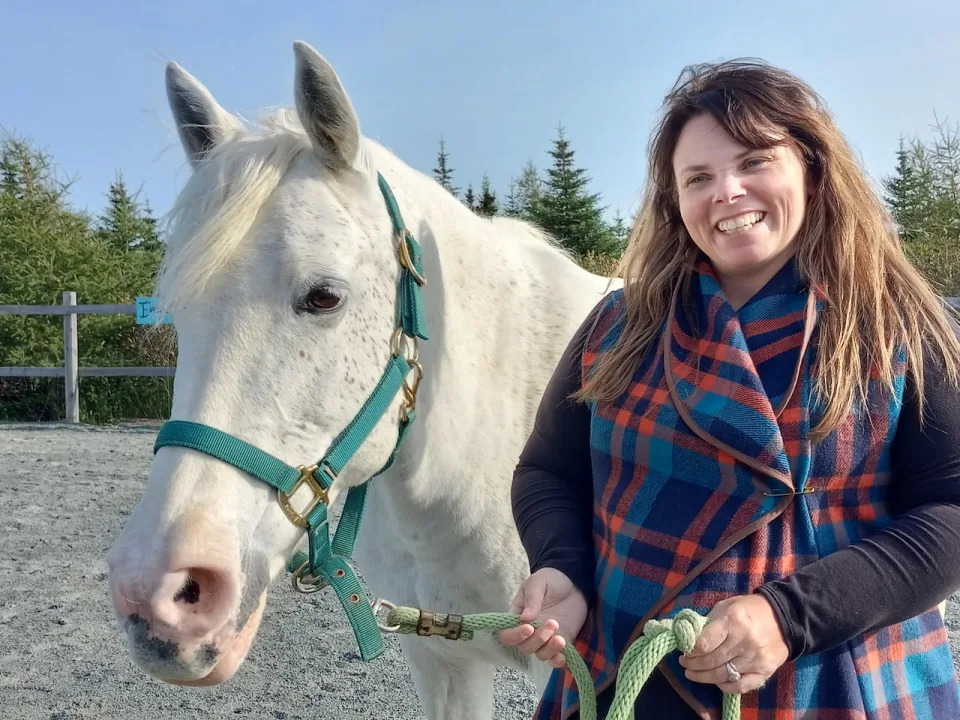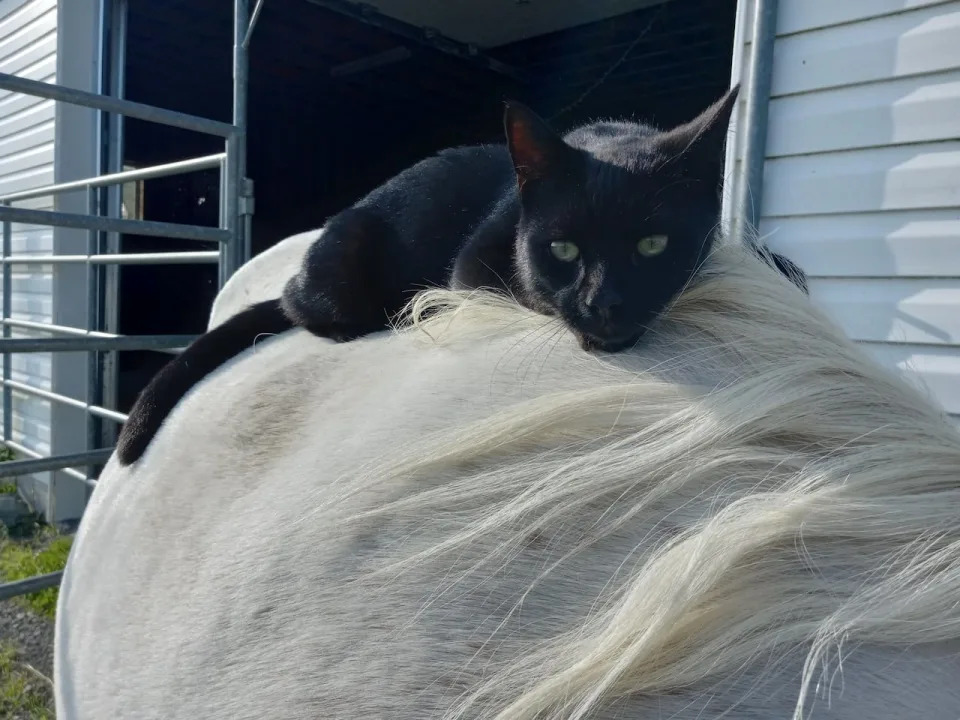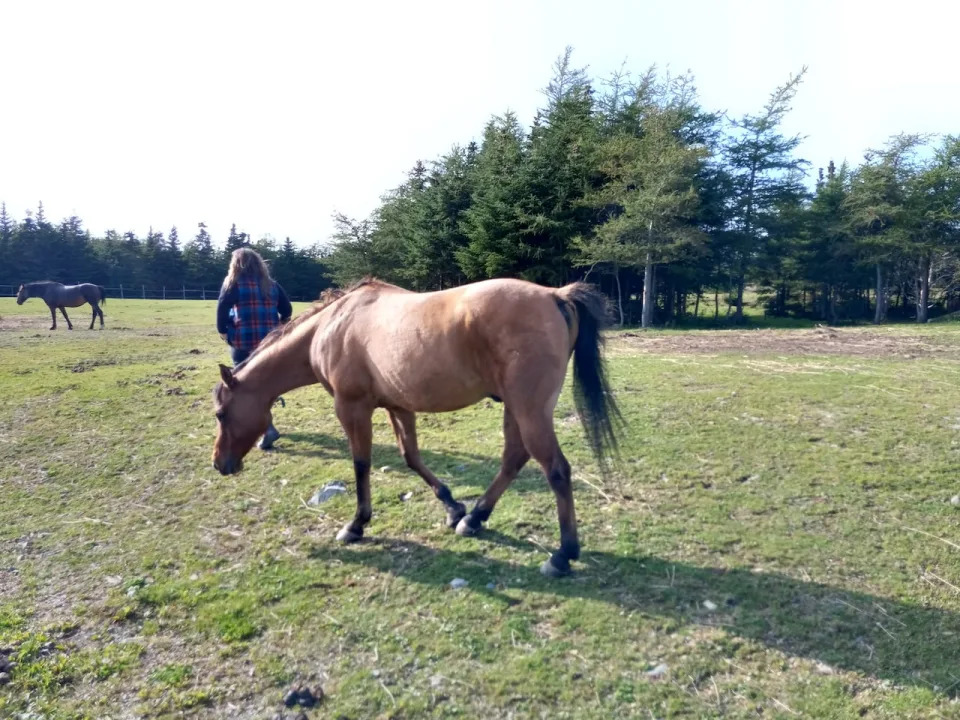CBC
Mon, October 9, 2023

Erin Gallant says Tinker was the horse that inspired her Portugal Cove-St. Philip's based equine therapy program. (Elizabeth Whitten/CBC - image credit)
For a decade, Stable Life has been offering its Spirit Horse program — free equine-assisted therapy and peer support — for those in need. But due to rising costs it's on hold while the organization looks for funding to help cover costs.
Program director Erin Gallant said it takes $150,000 to $200,000 a year to run the organization's Portugal Cove-St. Philip's facility.
"What we really need is core funding from the government, which we have put in a proposal for. As a not-for-profit we're always going to have to do fundraising," Gallant told CBC News in a recent interview.
"We've applied for our charitable status. We've laid a lot of good groundwork, but we really need immediate support from the government. We know that things take time."
The program offers horse therapy for people of all ages, from children to seniors. Gallant says they've also worked with the correctional justice system and other marginalization communities.
At the moment, Gallant said she's waiting to hear back from the provincial government after applying for $90,000 to cover staff costs.
A Department Health and Community Services spokesperson told CBC News in an email the funding proposal is under review.
She said stopping the program was a difficult decision to make. Stable Life is still offering some of their children's programs, which bring in money to feed the horses.
"But unfortunately we did have to lay off our staff, which is not the place we want it to be in."

Bailey the cat takes a nap on the back of Tinker. (Elizabeth Whitten/CBC)
The equine therapy program is popular, she said, with 170 people taking part in the program so far this year.
"Since 2020 we've serviced over 790 people and I'm sure that is on the lower end. That's just what we managed to remember to write down," she said with a laugh.
Fighting for funding
Gallant is going through the process of getting charitable status for Stable Life, which she said will make things easier for the organization. Businesses and other privately owned corporations might be more likely to make donations if they can get a tax receipt, she explained.
As an organization that routinely fundraises, she understands that the rising cost of living means people are more careful with their spending. People aren't donating to charities like they previously did, she said, and Stable Life isn't the only non-profit hurting.
"It seems like every not-for-profit is hurting. It is certainly not just ours," said Gallant.
Stable Life got a major financial lifeline in 2018 when it received $300,000 from the N.L. Beard and Moustache Club through its Merb'ys calendar fundraiser. Gallant said that money kept the group going for some time.
Gallant said they've also received money from the Red Cross, have a partnership with Violence Prevention Avalon East, and receive donations from family organizations. The Basil Dobbin Family Foundation has committed $100,000 for the next five years.

Whiz is another one of the horses at the farm where Gallant hosts Stable Life. (Elizabeth Whitten/CBC)
There are other grants out there, said Gallant, but said it feels like all the other non-profits are competing over them. Funding is crucial for mental health services because of their importance in keeping people healthy, she said.
"If you don't have a healthy workforce of people, you don't have people to go to those jobs. Everybody's mental health during the pandemic took a hit, and whether people realize it or not, they're going to end up traumatized. And all through COVID, we had people still coming here with us."
While the free equine program is on hold, Gallant said, the horses and barn are still standing.
"How we offer service might look a bit different. People can still come and visit so that there isn't that huge sense of loss that goes with when a service provision pauses. But, you know, it's still not the same."
No comments:
Post a Comment